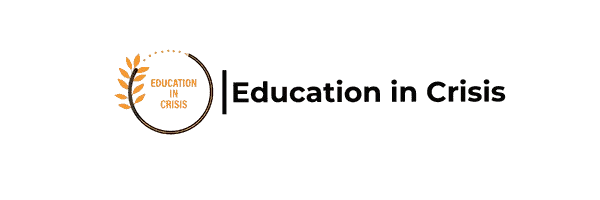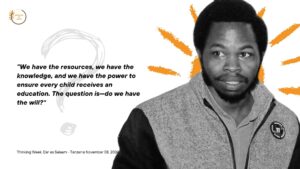As the youth of today, now is the time we stood up to advocate and champion the right to education for all everywhere around the world through supporting our fellow young people’s right to education.
Branding is key to organizational existence and because of that, EIC in November 2021 made a public announcement to inform the public, partners and stakeholders about our rebranding decision which came as a result of a similar brand name already in existence, our fear was that our future brand identification would be put in jeopardy and so it was necessary for us to act immediately to rebrand from Blossoms of the Nubian Savannah (BONS) to Education in Crisis (EIC) in January 2022. Adopting a new name with a new logo became official after successfully changing it with the SRRA in the Nuba Mountains, Sudan.
EIC was first registered by Sudan Relief and Rehabilitation Agency (SRRA) on November 9, 2020 but due to the Sudan political unrests from time to time, the co-founders agreed to legally establish the organization’s headquarters register in Tanzania to promote the smooth running of the NGO as well as keeping up with global donors, partners, individuals willing to invest into quality education for all African children and Youth by 2063 as per the African Union’s agenda.
From our humble start of an impactful journey, EIC has been led by resilient and committed volunteers and members bringing together small resources in kindness to impact children’s and Youth’s dreams through empowering them with quality education as a lifesaving tool. To do so, the youth mobilize grassroots support from private, public, and high net-worth individuals to invest in the right to education for all, while advocating for the implementation of inclusive, equitable and gender equality policies.
As the youth of today, now is the time we stood up to advocate and champion the right to education for all everywhere around the world through supporting our fellow young people’s right to education. It is time for every politician and policymaker to rethink the financing of education for every vulnerable youth and child. We also invite individuals and organizations both national and international to join us in calling on the world leaders to prioritize the Right to Education for all.


 DONATE NOW AND SUPPORT OUR MISSION.
DONATE NOW AND SUPPORT OUR MISSION.